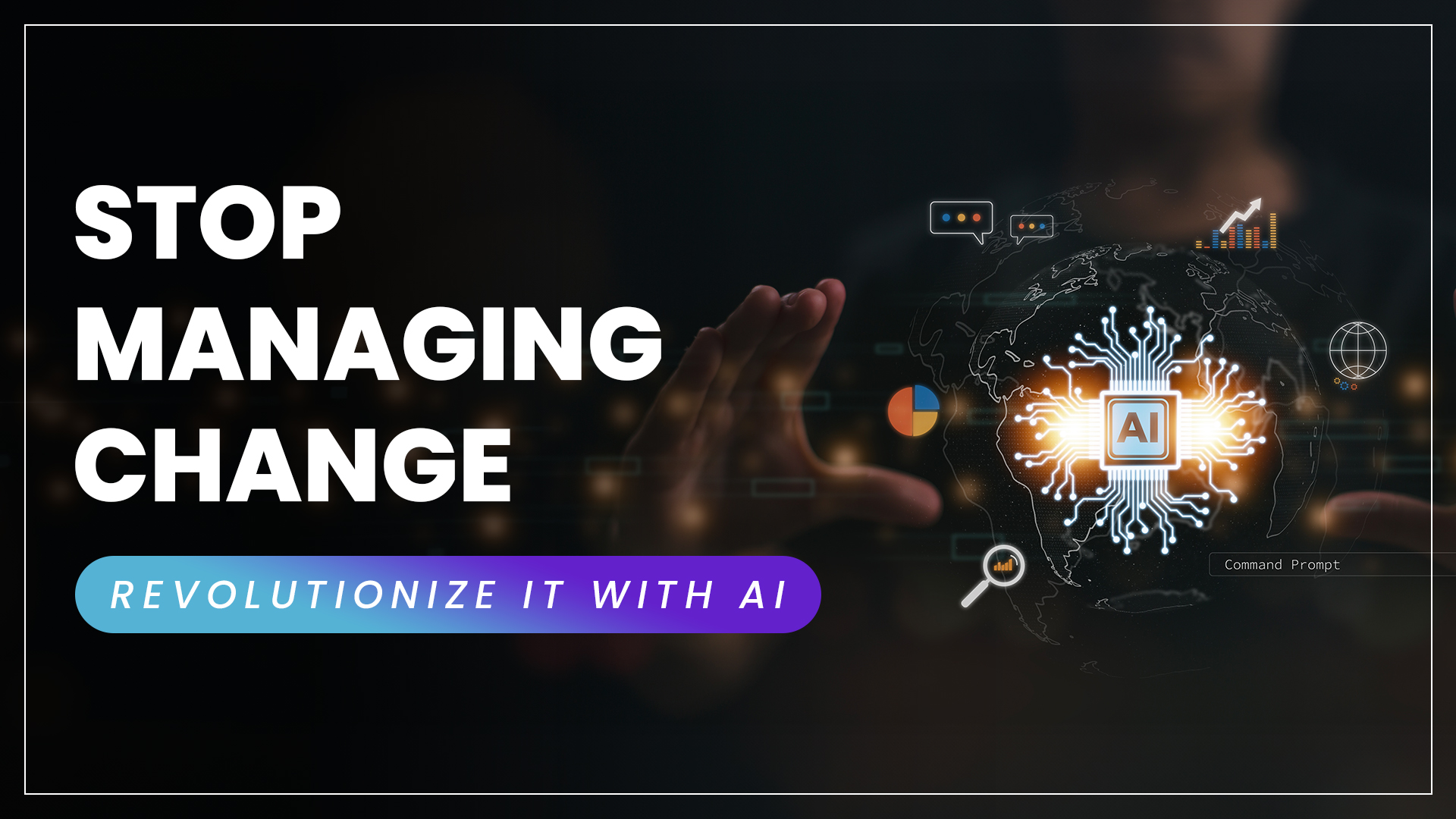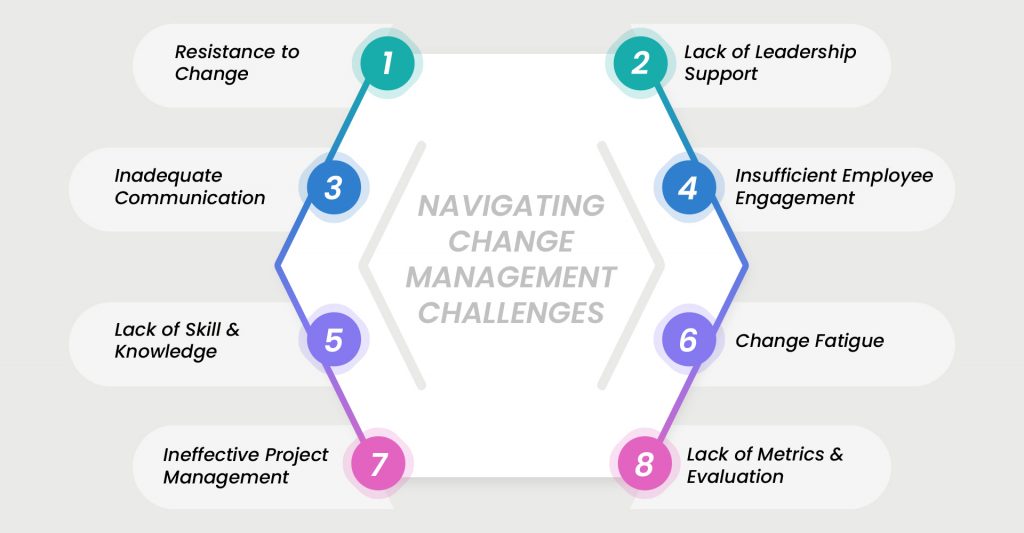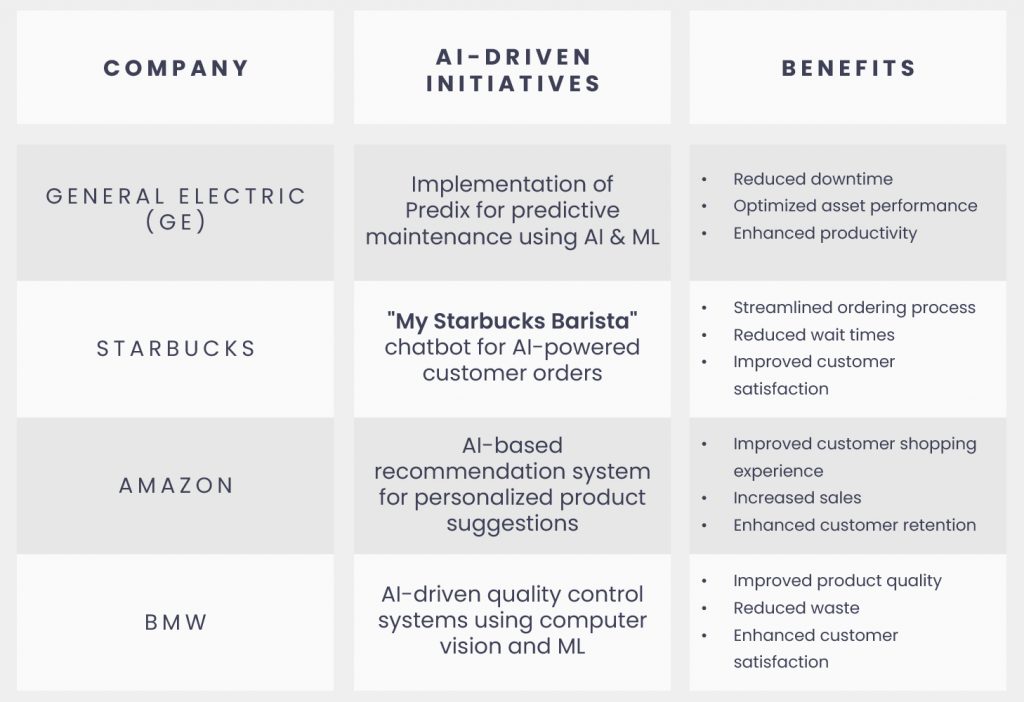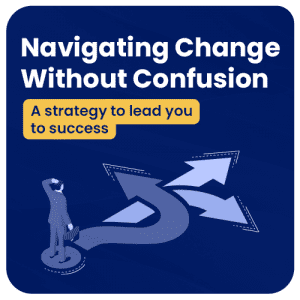
In today’s rapidly evolving technological landscape, digital transformation has become imperative for organisations across diverse industries. To remain competitive and relevant, businesses must adapt swiftly. However, the implementation of change management tools on such a vast scale presents complexities and challenges. Here, artificial intelligence (AI) emerges as a powerful catalyst, enabling successful digital transformation through effective change management.
This article delves into how AI is propelling successful digital transformation through adept change management. It explores specific use cases, analyses the benefits and challenges of AI integration in change management initiatives, and elucidates how organisations can utilise its potential to attain sustainable digital transformation outcomes.
Navigating Change Management Challenges
Organisations often encounter hurdles in the change management process, which can impede the seamless execution of digital transformation initiatives. These challenges encompass:

- Resistance to Change: Embracing new technologies, processes, or work methodologies can evoke reluctance among employees, stemming from apprehension of the unknown, concerns about job security, or a general aversion to change. Overcoming resistance necessitates effective communication, stakeholder engagement, and addressing employee concerns comprehensively.
- Lack of Leadership Support: Wholehearted endorsement from top executives and managers is pivotal for steering change initiatives clear of significant obstacles. Leaders articulate the vision, instil a sense of urgency, and champion the advantages of digital transformation. Absence of leadership support can breed confusion, lack of direction, and diminished employee motivation.
- Inadequate Communication: Clear and consistent communication serves as the lifeblood of successful change management. Poor communication fosters misunderstandings, fuels rumours, and exacerbates resistance. Organisations must effectively convey the rationale behind the change, the anticipated benefits, and its implications for employees. Establishing two-way communication channels encourages feedback, addresses concerns, and sustains employee engagement.
- Insufficient Employee Engagement: Active involvement of employees in the change process is indispensable for its success. When employees feel sidelined or detached from decision-making, it breeds disconnection and resistance. Organisations should involve employees early on, solicit their input, and provide avenues for participation and contribution to change initiatives.
- Lack of Skill and Knowledge: Embracing new technologies necessitates employees acquiring fresh skills and knowledge. Inadequate training and support breed frustration, hamper productivity, and fuel resistance. Organisations must identify skill gaps, offer relevant training programmes, and furnish ongoing support to equip employees with the requisite capabilities to adapt to changes.
- Change Fatigue: Change initiatives, particularly if frequent or simultaneous, can overwhelm employees, leading to exhaustion, demotivation, and disengagement. Proper pacing of change initiatives, provision of support systems, and celebration of milestones are essential to stave off burnout and sustain employee morale.
- Ineffective Project Management: Subpar project management practices invite delays, budget overruns, and compromised quality. A robust project management framework, delineating clear objectives, timelines, resource allocation, and diligent progress monitoring, is imperative. Regular evaluation and adjustments mitigate risks, ensuring that change initiatives stay on course.
- Lack of Metrics and Evaluation: Evaluating the impact and efficacy of change initiatives is indispensable for continual improvement. Employing appropriate metrics and evaluation mechanisms facilitates gauging whether desired outcomes are achieved. Organisations should define key performance indicators (KPIs), gather pertinent data, and analyse results to pinpoint areas for refinement and optimisation.
Addressing these common challenges necessitates a deliberative and proactive approach to change management. Organisations must devise comprehensive strategies, foster open communication and collaboration, provide requisite support and resources, and perpetually assess and adapt change initiatives to ensure successful digital transformation.
Benefits of AI in Change Management
AI-driven data-driven insights hold the potential to revolutionise decision-making in change management initiatives during digital transformation. Leveraging AI algorithms and advanced analytics techniques, organisations can extract invaluable insights from vast and intricate datasets, facilitating more effective and informed decision-making across the change management spectrum.
Here’s how AI data-driven insights can enhance decision-making in change management:
- Predictive Analytics: AI analyses historical and real-time data to discern patterns and trends, enabling organisations to anticipate potential hurdles, resistance, or areas of success during the change management journey. By leveraging predictive analytics, decision-makers can proactively devise strategies to tackle challenges, mitigating risks and bolstering the likelihood of success.
- Employee Sentiment Analysis: AI-powered sentiment analysis gauges employee attitudes, emotions, and perceptions regarding change initiatives. By scrutinising data from diverse sources like surveys, social media, and internal communications, AI offers insights into employee sentiment, spotlighting areas necessitating additional support, engagement, or intervention. Decision-makers can tailor change management strategies to address specific concerns, fostering heightened employee engagement and buy-in.
- Recommender Systems: AI-based recommender systems suggest pertinent resources, training programmes, or best practices to employees based on their roles, skills, and requirements. These systems analyse individual and collective data to furnish personalised recommendations, aiding employees in adapting to changes more effectively and enhancing their performance during the transition.
- Real-time Analytics: AI empowers organisations to conduct real-time data analysis, furnishing decision-makers with up-to-date insights into the progress and impact of change initiatives. Real-time analytics facilitate identification of bottlenecks, assessment of intervention effectiveness, and agile decision-making, enabling timely adjustments and optimisation of change management strategies.
- Simulations and Scenario Planning: AI-driven simulations model diverse scenarios and their potential outcomes, enabling decision-makers to evaluate the repercussions of various change management strategies pre-implementation. By simulating alternate scenarios, organisations can gauge potential risks and benefits, enabling data-driven decision-making predicated on probable outcomes.
- Continuous Monitoring and Feedback: AI-driven monitoring systems perpetually collect and analyse data related to change initiatives, providing decision-makers with real-time feedback on progress, adoption rates, and areas necessitating attention.
The fusion of AI and human intelligence engenders a more agile, efficient, and adaptive change management process, culminating in smoother transitions and sustainable digital transformation outcomes.
Use Cases: How is AI used in change management
Several companies have achieved successful digital transformations with AI-driven change management. Here are a few examples:

These are just a few examples of companies successfully employing AI-driven change management in their digital transformation strategies. The key to their success lies in leveraging AI technologies to drive innovation, improve processes, and deliver enhanced customer value.
Conclusion
The digital era necessitates organisational transformation to maintain competitiveness and relevance. However, implementing large-scale change can pose complexities and challenges. Artificial intelligence emerges as a potent tool for driving successful digital transformation through effective change management. By leveraging AI-powered data-driven insights, organisations can address common challenges in change management and make informed decisions throughout the process. AI offers predictive analytics, employee sentiment analysis, recommender systems, real-time analytics, simulations, and continuous monitoring and feedback, thereby enhancing decision-making, employee engagement, and agility. While AI-driven insights are invaluable, human expertise remains indispensable. Organisations must foster a collaborative environment where AI complements human decision-making.
In a nutshell, the future of change management with AI appears promising, with intelligent change management platforms, enhanced employee experiences, predictive and prescriptive analytics, human-AI collaboration, and a focus on ethical AI and bias mitigation.
To navigate change complexities like a pro, consider getting Prosci certified with Marg, the Prosci authorized affiliate in India.






